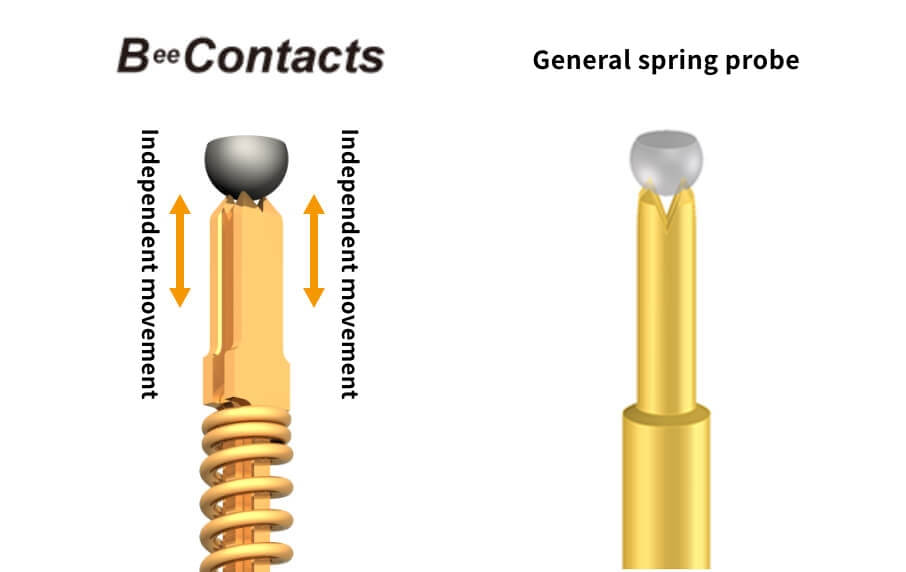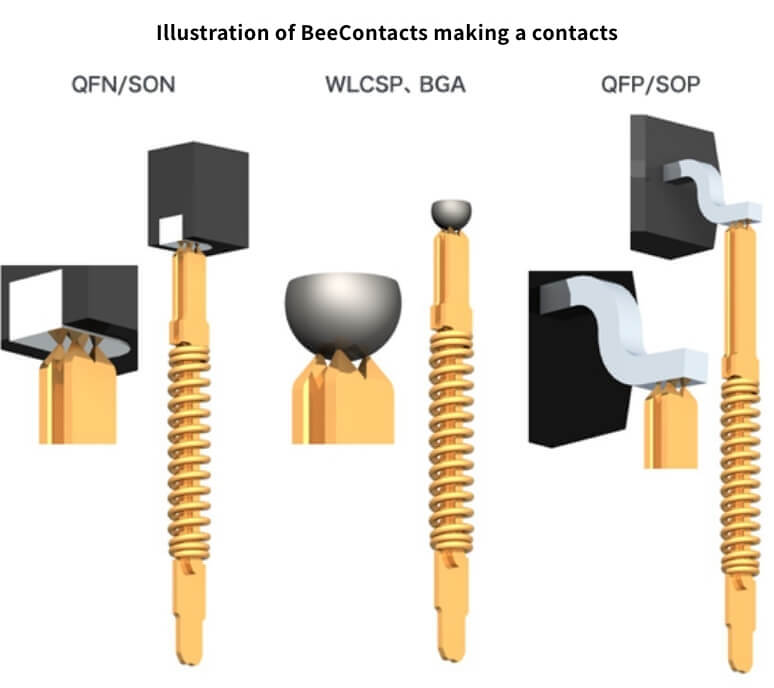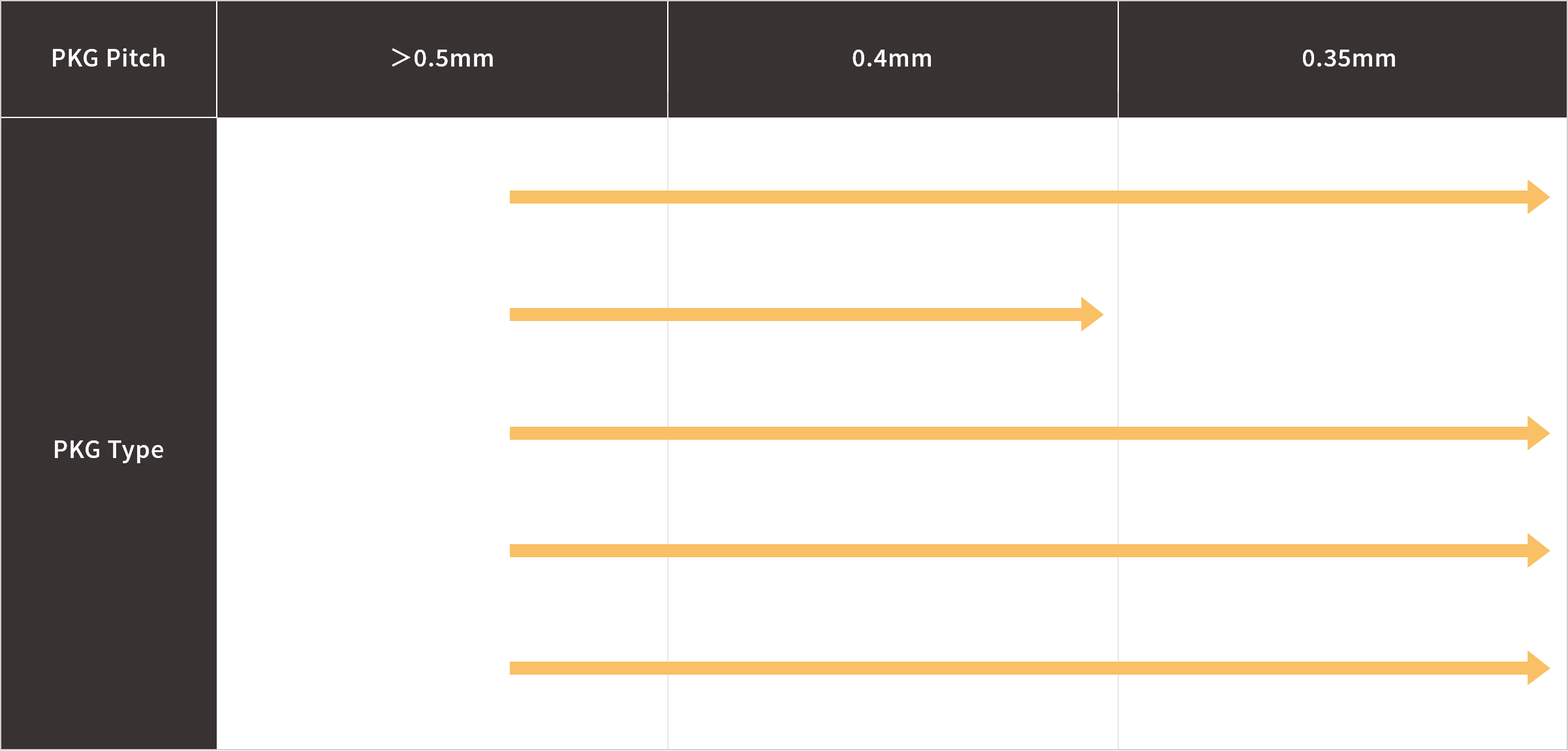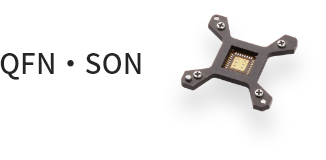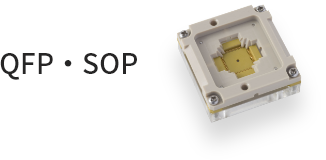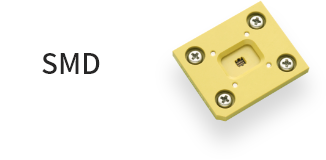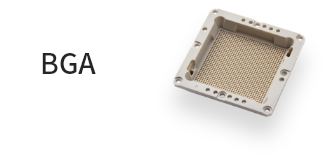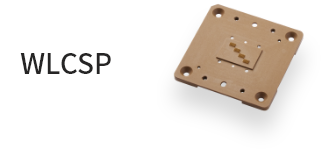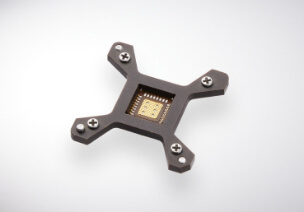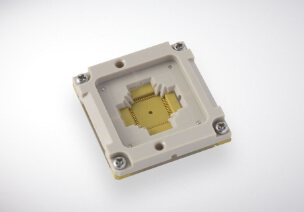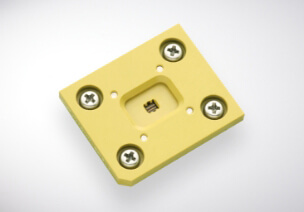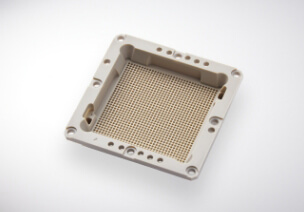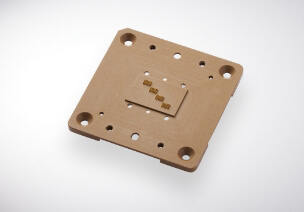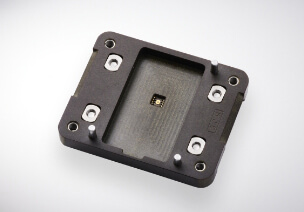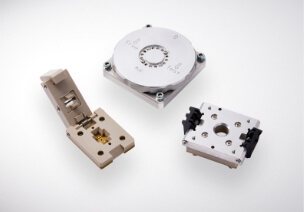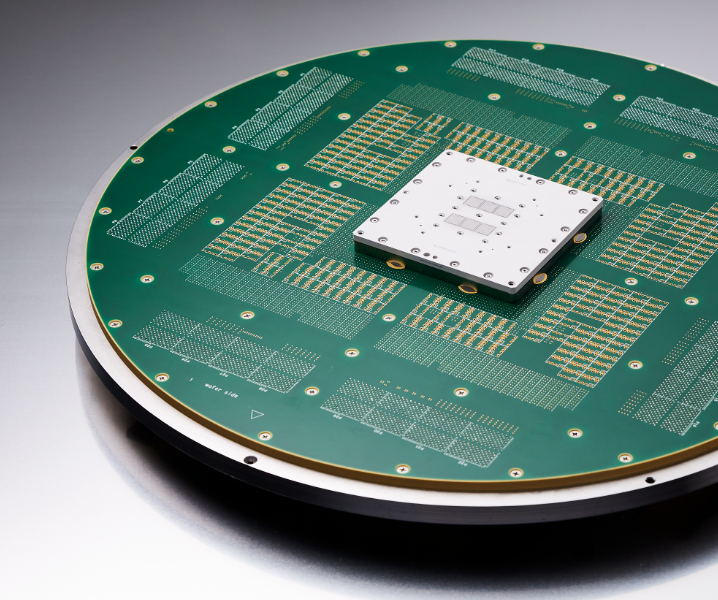Package Probe (Test Socket)

Test sockets are customized according to testing environments
Jigs for testing the electrical characteristics of devices in the final testing stage after LSI package assembly.
To match the increasingly high functionality of LSIs for communications and networks, such as mobile phones and mobile devices, we provide two types of test sockets: The "J-Contacts" series suited for high-frequency, high-performance devices, and the "BeeContacts" series, spring probes with a unique structure that delivers excellent contact stability.
Back to Semiconductor Related Products
What is a package test socket?
There are two important tests in semiconductor manufacturing.
One is the wafer test during the wafer process, in which electrical characteristics of chips are tested before dicing a wafer into many pieces of semiconductor (called dies or chips). The other is the final test during the assembly and testing process, which is conducted after packaging the diced chips.
An IC socket is used in the final test. It plays the crucial role of connecting the device and the tester, just as a probe card does in the wafer test (see the figure below).
Depending on the purpose of the test, IC sockets are categorized into two groups: burn-in sockets for testing reliability, including durability, and test sockets for measuring electrical characteristics. Although these two types are both generally referred to as IC sockets, the required performance varies depending on the difference in use.
MJC provides two types of test sockets: the J-Contacts series and the BeeContacts series. Compared with conventional test sockets, these series offer higher-performance test sockets that excel in electrical characteristics, particularly high frequency characteristics and contact.
These test sockets are suitable for testing power devices and electrical parts for mobile communication and in-car devices, and are customizable according to the testing environment.
To differentiate its test sockets that probe LSI packages in a more advanced field of measurement than that of conventional products, MJC calls these “package probes.”
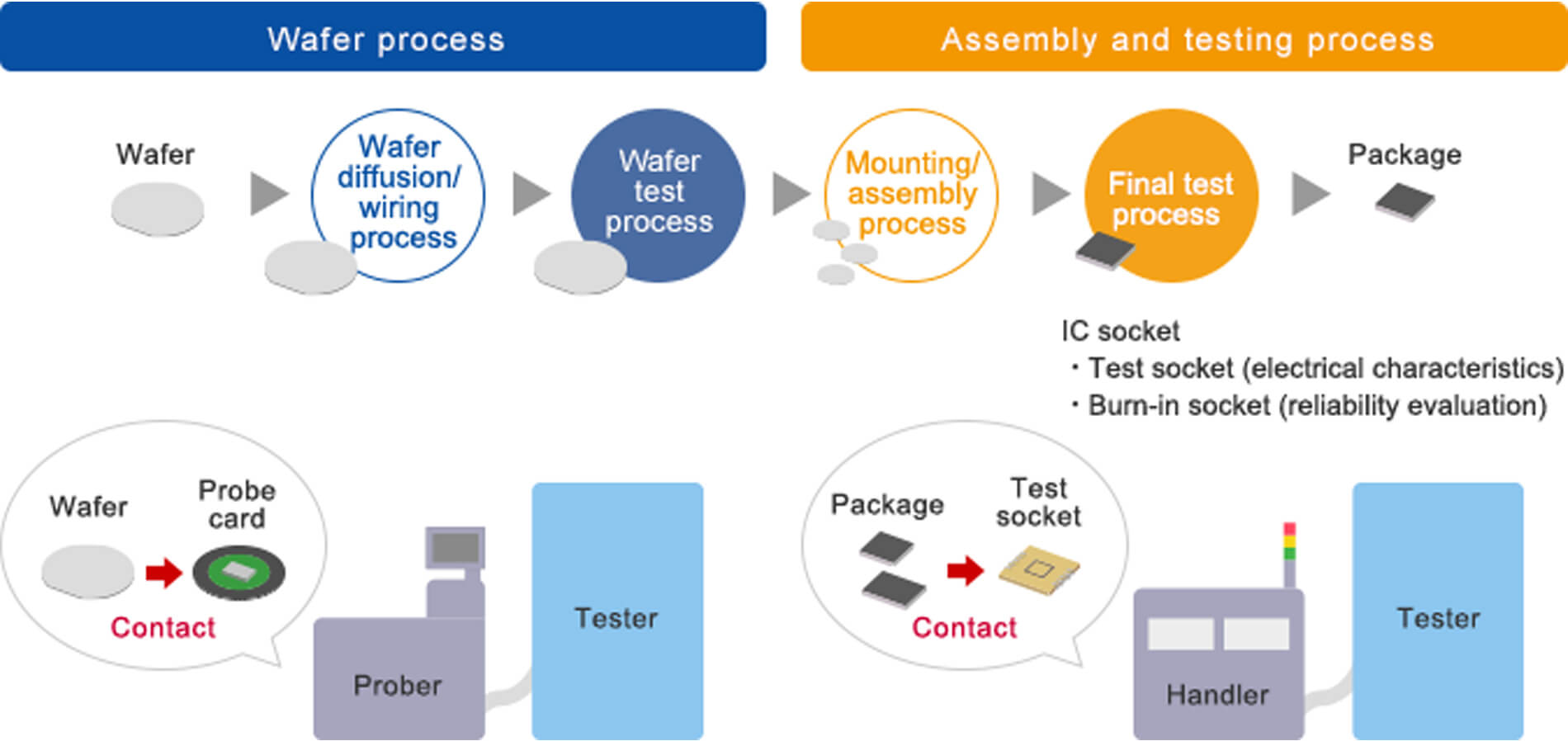
What is J-Contacts?
The J-Contacts series offers test sockets with contact terminals of the unique rigid type (integrated type) using elastomer (silicon rubber), as opposed to the leaf spring type often used for burn-in sockets. Therefore, J-Contacts features shorter contact terminals than conventional the leaf spring type and superior electrical characteristics, particularly high frequency characteristics.
Additionally, the smooth movement of the contact terminals helps achieve ideal contact with minimal damage to devices and DUT boards.
These test sockets are used in the final test process for quad flat package/small outline package (QFP/SOP) and quad flat non-lead package/small outline non-lead package (QFN/SON).
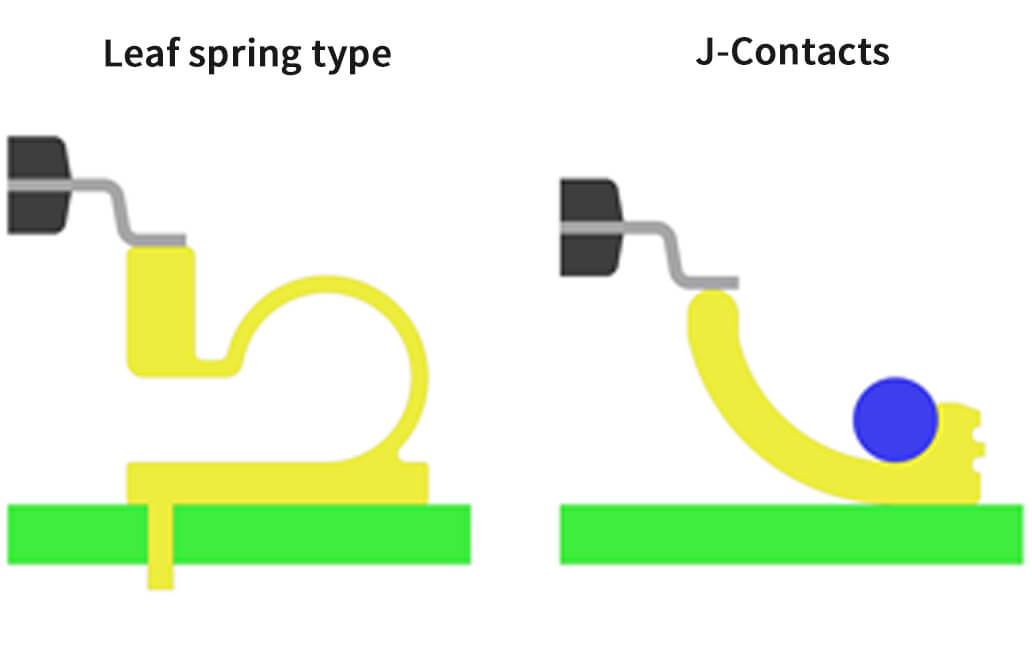 Leaf spring vs. J-Contacts
Leaf spring vs. J-Contacts
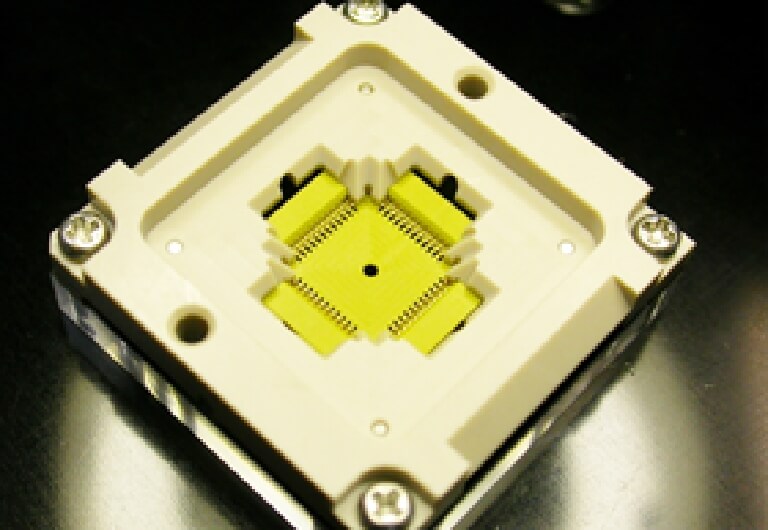 Enlarged top view of the J-Contacts
Enlarged top view of the J-Contacts
What is BeeContacts?
BeeContacts is a series of spring probe-type contact terminals developed by MJC.
Thanks to their easy maintenance and stable contact, these contact terminals are used in test sockets from the BeeContacts series and the probe card for WLCSP.
The BeeContacts has been developed to solve a problem that occurs in the final test process of package testing, namely, the deterioration of contact of the spring-type contact terminals that are generally used.
After reviewing the conventional spring structure (comprising a plunger, a barrel and a spring), MJC adopted a new barrel-less structure (comprising plungers and a spring) for the BeeContacts series to achieve better contact.
The BeeContacts is designed to enable two plungers to move independently for multi-point contact. Due to the distinctive structure, the sharp plunger edges conduct self-cleaning with micro scrub movements and break through the oxidized film and foreign materials on the solder surface to achieve superior, stable contact.
Compared with the cylindrical plungers of spring probes, the leaf plungers of BeeContacts allow thicker plating and excel in radiation performance therefore making them suitable for high current measurement.
